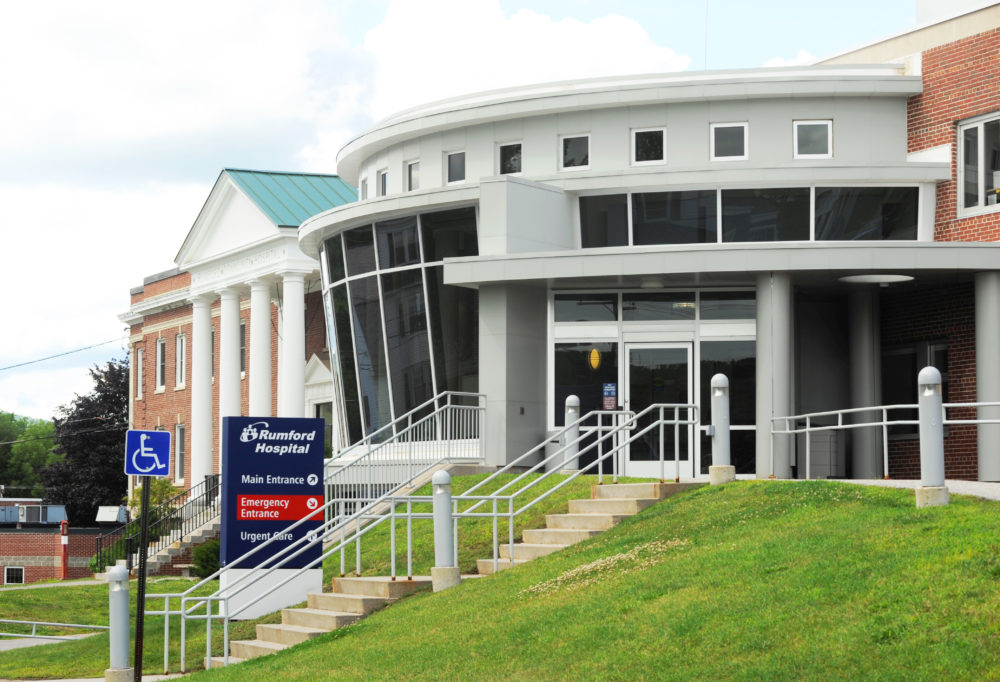Advertisement
Rural Hospitals Say ‘Medicare For All’ Would End Up 'Closing Our Doors'

Adopting a single-payer government health care program that covers all Americans would force more rural hospitals to close, according to hospital administrators from Texas to Maine.
Universal health care — also known as “Medicare for All” — is a long way from becoming law. But the issue is already dividing Democrats trying to unseat President Trump in the 2020 election.
Some progressive front-runners like Elizabeth Warren and Bernie Sanders say they'd be willing to do away with private insurance in favor of a government plan.
Moderates have balked at that idea — and at the price tag.
Here's how former Rep. John Delaney put it during the Democratic debate in June: “If you go to every hospital in this country and you ask them one question, which is, ‘How would it have been for you last year if every one of your bills were paid at the Medicare rate?’ Every single hospital administrator said they would close."
"Congressman Delaney is wrong — full stop," says Craig Garthwaite, a health care economist at Kellogg School of Management at Northwestern University.
Garthwaite says it's more likely hospitals will be forced to scale back services, amenities and staff under a Medicare for All system.
"We're going to get a different kind of hospital going forward and we'll have to decide if that's what we want,” he says. “But it's hyperbole to say all hospitals will close.”
But that is the position of hospital executives at Central Maine Healthcare.
About two-thirds of patients using the company's two critical-access rural hospitals are covered by either Medicaid or Medicare. The government pays the hospital 99% of allowable Medicare costs, says Peter Wright, who runs the company's Bridgton and Rumford hospitals.
That means — hypothetically — if an X-ray costs $100, Medicare will reimburse the hospital $99.
Advertisement
"It doesn't leave us any surplus funds to reinvest in our facility, to reinvest in our equipment, reinvest in our people," Wright says.
On the other hand, he says about a quarter of his patients use private insurance, which pays well above $100 for the same X-ray.
"If you're talking about Medicare for All and turning every one of our patients into a Medicare patient, we'd probably end up closing our doors eventually," he says.
Across the country, 113 rural hospitals have closed since 2010, according to University of North Carolina researchers. Population loss in rural areas and increasing technological demands of a modern health care system have made it difficult for these hospitals to maintain the revenues they need to operate.

But predictions of further demise under a single-payer system may be overblown, according to research from the Congressional Budget Office.
Universal health care would likely boost revenue at rural hospitals "because they take care of so many Medicaid and Medicare and uninsured patients today," CBO's Jessica Banthin told lawmakers at a congressional hearing in May.
"They treat a greater share of uninsured patients than some more urban and suburban hospitals do,” she said. “They could actually get more revenue under a single-payer if Medicare payment rates were provided for every patient."
In other words, under Medicare for All, no one would show up to the emergency room without insurance. Everyone is a paying customer.
Supporters of Medicare for All also point out that reimbursement rates are negotiable when the law is written.
"That could be entered into the conversation," says Donald Berwick, former administrator of the Centers for Medicare & Medicaid Services during the Obama administration.
"Those who care about rural hospitals — like I do — would have the ability to argue that a Medicare for All system should make more effective adjustments of payments to meet the needs,” Berwick says.
But hospital executives are not convinced that politicians would vote to increase reimbursement rates.
John Henderson, who runs Torch, a group that represents rural and community hospitals in Texas, says no state has been hit harder by rural hospital closures.
"We now count 23 hospital closures since 2013 and another 40% to 45% with negative operating margins,” he says. “So there could be at least that many more if something doesn't improve.”
Henderson adds that forcing patients to move off of lucrative private insurance plans and into Medicare will only make the problem worse.
"The problem with Medicare for All is that we aren't just talking about trying to get people without coverage into a program that covers them,” he says. "You can't make it up on volume."
This segment aired on August 16, 2019.
